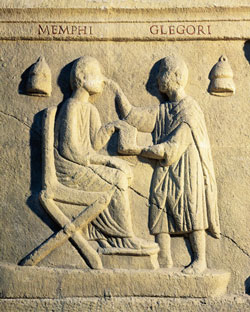1 Why the body?
In many ways, human history is a history of bodies. Bodies attend parliaments and move to different regions; it is in human brains that ideas are conceived and decisions are made; it is human limbs that embrace friends and fight enemies. Moreover, history is shaped by bodily experience: lives of important people have been cut short by illnesses; large groups of migrants have decided to stay in or leave regions based on their capacity to acquire food and cope with the climate; major political crises have resulted from the simple fact of sexual attraction between two key figures. These may seem obvious points to make, but starting from these considerations gives us a new approach to the past and a fascinating prism through which to explore ancient societies.

The centrality of the body to human cultures is something an increasing number of scholars have begun to explore and, in the past few decades especially, there has been an explosion in the number of studies that use the human body as a starting point for understanding various aspects of the ancient world. When we bring the dimension of the body into the way we view the past, we suddenly find that new questions and new ways of approaching old questions emerge. For example, in the field of architecture the study of ancient buildings is as old as the discipline of classical studies itself, but what did it feel like to walk through the streets of, say, a Greek or Roman city? What were the smells and sounds one might have experienced? How far could one see? How much light was there in a given area?
But why is the body so interesting? It doesn’t take much to consider that all humans throughout history have been born, have eaten, slept, fallen ill, experienced injuries and died. This is precisely where it gets interesting, because although all humans have done or will do these things, the way that they have gone about them has differed dramatically according to the society in which they lived. In other words, the way that people fulfil their basic bodily needs and engage in their daily activities is embedded in the social world around them.
